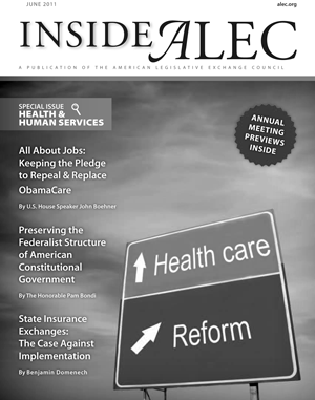The New York Times’ analysis of the deal in Washington to raise the debt ceiling quoted remarks made Sunday by Mohamed El-Erian, chief executive of the bond investment firm Pimco, in an appearance on ABC. El-Erian offered his assessment of the effects of cutting federal spending: “Unemployment will be higher than it would have been otherwise. Growth will be lower than it would be otherwise. And inequality will be worse than it would be otherwise.”
El-Erian added, “We have a very weak economy, so withdrawing more spending at this stage will make it even weaker.”
If some Jewish World readers don’t want to listen to the analysis of a guy named Mohamed, perhaps they will consider the similar assessment of the debt ceiling deal offered by Paul Krugman, who happens to be Jewish and a Nobel economics laureate.
In Monday’s New York Times, Krugman wrote that the Washington deal, which many politicians and observers say averted a disastrous federal default, “is a disaster… It will damage an already depressed economy; it will probably make America’s long-run deficit problem worse, not better; and most important, by demonstrating that raw extortion works and carries no political cost, it will take America a long way down the road to banana-republic status.”
Given a “deeply depressed economy,” which likely will stay that way through 2013, Krugman says, “the worst thing you can do in these circumstances is slash government spending, since that will depress the economy even further. Pay no attention to those who invoke the confidence fairy, claiming that tough action on the budget will reassure businesses and consumers, leading them to spend more. It doesn’t work that way, a fact confirmed by many studies of the historical record.”
Krugman adds, “Those demanding spending cuts now are like medieval doctors who treated the sick by bleeding them, and thereby made them even sicker.”
The dimensions of federal budget cutting in the debt ceiling agreement were laid out Monday in a statement from Robert Greenstein, president of the Center on Budget and Policy Priorities (CBPP), who said the deal “places the nation on a disturbing policy course and sets what may become important precedents that are cause for serious concern.”
The agreement among President Obama and members of Congress “starts with nearly $1.1 trillion (or $840 billion, depending on the budget baseline used) in discretionary (i.e., non-entitlement) spending cuts over ten years, enforced by binding annual caps through 2021,” explains Greenstein. Further, a Joint Select Committee on Deficit Reduction will propose, by Nov. 23, steps to reduce the deficit by at least another $1.5 trillion over 10 years. This deficit reduction panel will have to come up with at least $1.2 trillion in spending cuts; otherwise, an “automatic across-the-board cut in nonexempt discretionary and entitlement programs will take effect to make up the difference between what they accomplished and the $1.2 trillion target.”
Greenstein notes that similar “multiyear discretionary [spending] caps” were part of deficit reduction deals in 1990 and 1993; however, those agreements also included revenue increases. The CBPP head points out that the multi-year spending caps negotiated without any agreement on increased revenues “[make] it even harder to secure revenue increases for deficit reduction in the future,” because “anti-tax policymakers” already have won their spending cuts — again, $1.1 trillion for starters.
Of course, the recent spat over raising the debt ceiling and the deficit is not the end of the matter, and more serious disputes are fast approaching.
“In key respects… this deal postpones the biggest battle over deficit reduction, creating an even more cataclysmic clash that would occur most likely in a lame-duck congressional session after the 2012 election,” writes Greenstein. “At that point, three huge events will loom: 1) across-the-board cuts in January 2013, with half of them coming from defense (amidst likely charges that they will jeopardize national security); 2) the scheduled expiration of President Bush’s tax cuts at the end of 2012; and 3) the renewed specter of default if policymakers do not raise the debt ceiling quickly again by early 2013. Where all of that will lead policy debates and outcomes is impossible to predict at this point.”
Many Minnesotans had a sense of déja vu watching the debate and brinksmanship in the nation’s capital. The D.C. wrangle (a “self-inflicted financial crisis,” according to the Times reporters) featured some of the same elements that we saw in the recent battle over the Minnesota biennial budget, which resulted in a three-week government shutdown. The Democrats argued for protecting social programs and raising revenue in a progressive way; and the Republicans, their ranks swelled by the Tea partisans, called for drastic budget cutting and no tax increases.
In Minnesota, Gov. Mark Dayton finally acceded to many of the Republican-controlled Legislature’s budget positions, in the interest of ending the dislocation caused by the shutdown and putting 22,000 public employees back to work. To reach an agreement with the Republicans, Dayton gave up on his proposal to increase taxes on the wealthiest families in the state — even on his modified offer to raise taxes only on those making a million dollars per year.
The upshot of the Minnesota deal is that the budget will be balanced on the back of the state’s “most vulnerable populations, including the elderly, those with disabilities, and low-income families with children,” according to the Minnesota Budget Project, an initiative of the Minnesota Council of Nonprofits.
For example, the Minnesota Budget Project reports that “funds intended to support families seeking to stabilize their lives, find employment and become self-sufficient are instead used to help balance the state’s budget, including $20 million from the Minnesota Family Investment Program (MFIP) Consolidated Fund and $38 million in federal funds for Temporary Assistance for Needy Families (TANF).”
The budget think tank expressed relief that the final health and human services legislation did not contain the provision to cut current health coverage for 100,000 Minnesotans. However, in provisions that likely will impact Jewish communal social service providers, and those in the greater community, the state budget limits the number of individuals who can enroll in waiver programs, which enable the elderly and those with disabilities to get home care and avoid entering an institution. The Minnesota Budget Project says that cuts to waiver programs total $64 million over 2012-2013.
Also, payments to personal care attendants (PCAs) will be cut by 20 percent, which will put an additional burden on families who care for spouses or children with physical or developmental disabilities. More than $70 million of the Minnesota budget cuts hit community-based social service providers. The Minnesota Budget Project notes that nursing homes are exempt from most immediate payment rate cuts, but the health and human services funding bill “eliminates a scheduled $133 million increase in reimbursement rates in FY 2014-15. This planned ‘rebasing’ would have reevaluated the state’s current reimbursement rate to bring it in line with the cost of providing care.” (The leaders of local Jewish social service agencies are welcome to illuminate Jewish World readers with their views on what the recently enacted Minnesota budget cuts mean for their clients.)
The political juggernaut calling on elected officials to “starve the beast,” to eviscerate whatever is left of the governmental social safety net, did not drift in on an errant breeze. As it turns out, right-wing billionaires and corporations funded think tanks to devise a raft of legislation that is becoming law — after Republicans picked up 680 legislative seats in the 2010 elections, and took control of both legislative chambers and the governorships in 21 states.
Specifically, ALEC, the American Legislative Exchange Council, a consortium of state legislators, wealthy right-wing individuals (Charles and David Koch et al.) and corporations, has been revealed as the prime driver behind “model legislation” reflecting the group’s long-term goals: “downsizing government, removing regulations on corporations and making it harder to hold the economically and politically powerful to account,” according to John Nichols, in his introduction to a series of articles in The Nation (Aug. 1/8, 2011). “Corporate donors retain veto power over the language [in model bills], which is developed by the secretive task forces. The task forces cover issues from education to health policy. ALEC’s priorities for the 2011 session included bills to privatize education, break unions, deregulate major industries, pass voter ID laws and more.”
 The June edition of Inside ALEC, the magazine of the American Legislative Exchange Council, which has been introducing pro-business legislation across the country, is about health and human services. The lead story, about repealing “ObamaCare,” is by House Speaker John Boehner.
The June edition of Inside ALEC, the magazine of the American Legislative Exchange Council, which has been introducing pro-business legislation across the country, is about health and human services. The lead story, about repealing “ObamaCare,” is by House Speaker John Boehner.
Also, Wendell Potter, a former health insurance executive, in an article titled “Sabotaging Healthcare” in the same issue of The Nation, notes that ALEC also has been battling against federal reform of medical insurance regulations, the recently passed Affordable Care Act.
In another article, “Business Domination Inc.,” Joel Rogers and Laura Dresser write: “In the world according to ALEC, competing firms in free markets are the only real source of social efficiency and wealth. Government contributes nothing but security. Outside of this function, it should be demonized, starved or privatized. Any force in civil society, especially labor, that contests the right of business to grab all social surplus for itself, and to treat people like roadkill and the earth like a sewer, should be crushed.”
The articles in The Nation are part of an ALEC exposé, in collaboration with the Center for Media and Democracy, which has created a Web site with an archive of ALEC’s legislation. It is at: alecexposed.org.
In Minnesota, Republican lawmakers Rep. Mary Kiffmeyer, the former Minnesota Secretary of State, and Sen. Gen Olson, are affiliated with ALEC. According to ALEC’s Web site, Olson is a former ALEC state co-chair (with Laura Brod); Kiffmeyer became ALEC’s Minnesota state chair in June. And the Minnesota Independent reports that Rep. Erik Paulsen is a member of ALEC’s federal affairs section, “which includes 71 U.S. House members and six U.S. Senators. The group’s purpose is to build collaboration between federal and state members, and provide ‘members with information and testimonial support from the states on pressing policy matters,’ according to a leaked membership document,” MinnIndy’s Jon Collins reported.
Collins also spoke with Rep. Ryan Winkler, DFL-Golden Valley, who told the online news outlet that a regular stream of ALEC legislation has been coming to Minnesota through some Republican lawmakers. The Center for Media and Democracy listed 16 Minnesota lawmakers who had ties to the organization.
So how do we turn the tide on the Republican/Tea Party offensive against the poor and working people? There was popular outrage earlier this year, when Rep. Paul Ryan, of Wisconsin, proposed a federal budget that would have killed Medicare. Likewise, Americans favor specific programs that provide help to the elderly, infirm and unlucky among us. Perhaps we can take a cue from the Israelis who recently took to the streets in unprecedented protests, which called for “social justice,” as the necessities of life have become too expensive for a wide swath of the middle class.
In Israel, it started with the escalating price of cottage cheese. In Wisconsin, the Dairy State, Gov. Scott Walker and the Republican-controlled Legislature took away collective bargaining rights from public employees and ignited mass protests. The disparity of wealth between an elite group and most Americans is corrosive to a sense of fairness in this society. It is time for the political pendulum to swing back to sanity and humanity.
— Mordecai Specktor / editor@ajwnews.com
(American Jewish World, 8.5.11)










 The June edition of Inside ALEC, the magazine of the American Legislative Exchange Council, which has been introducing pro-business legislation across the country, is about health and human services. The lead story, about repealing “ObamaCare,” is by House Speaker John Boehner.
The June edition of Inside ALEC, the magazine of the American Legislative Exchange Council, which has been introducing pro-business legislation across the country, is about health and human services. The lead story, about repealing “ObamaCare,” is by House Speaker John Boehner.









